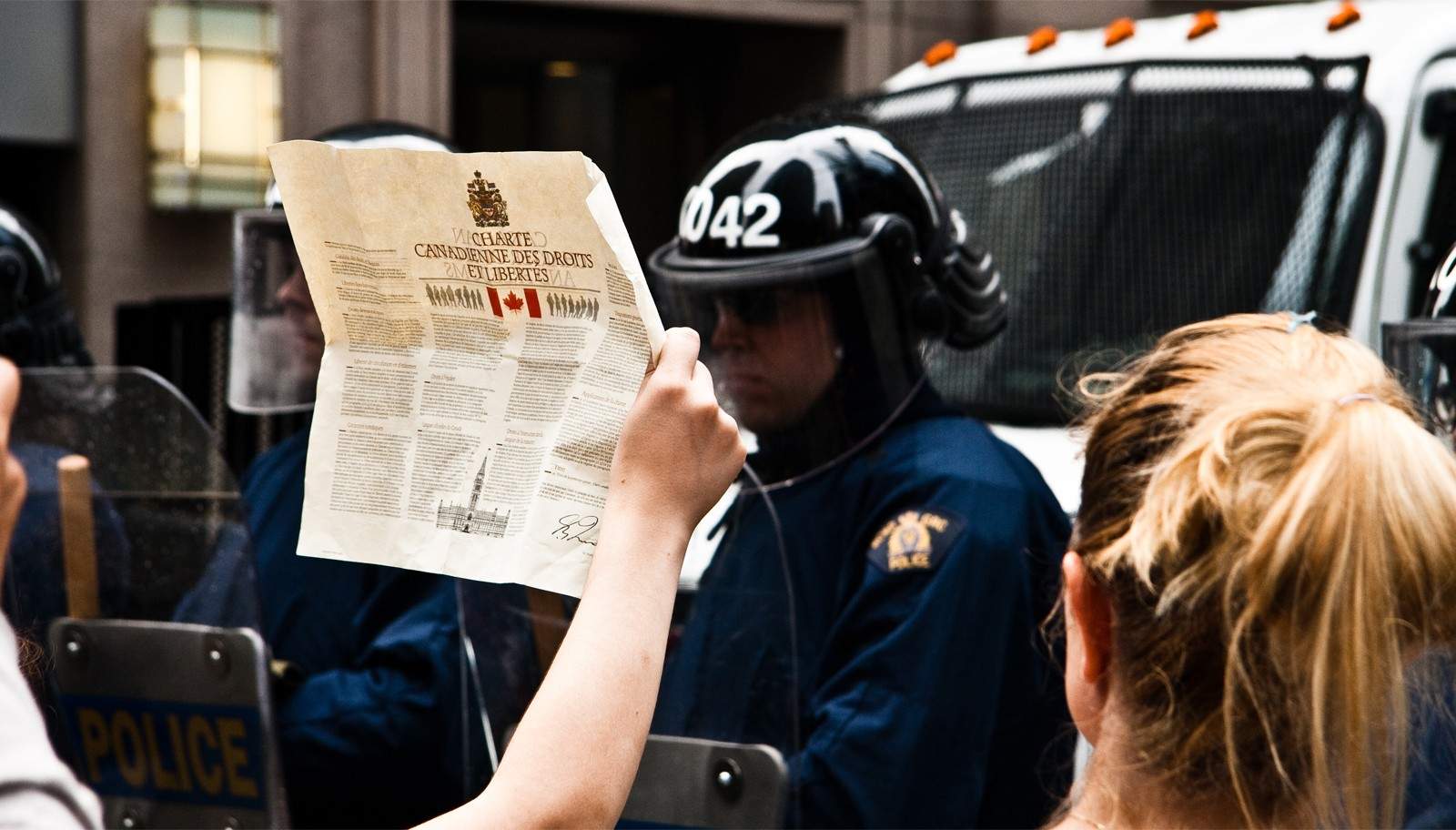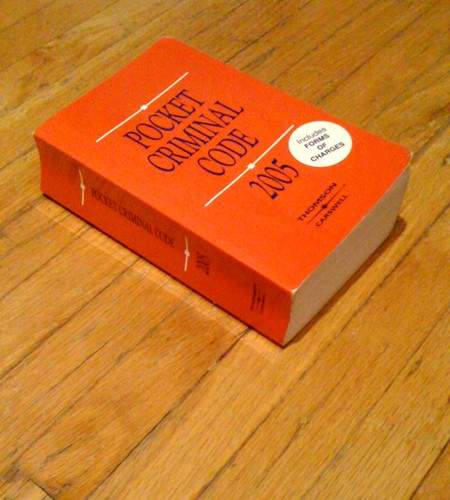No
The Canadian Legal System
Note: While all efforts have been made to ensure the information on this page is accurate, nothing on this page should be used as a substitute for legal advice.
Canada is a nation governed by laws, and the Canadian legal system is the means through which those laws are written, organized, enforced, and interpreted.
As a country founded by England, the fundamental principles of Canadian law are not terribly different from those governing the legal system of Great Britain, the United States, or any other country with a history of British rule. This English tradition states that laws must be clear and rational, that all accused persons are innocent until proven guilty, that incriminating evidence must meet very high standards, and that the law’s power over the individual is limited by precedent and the Constitution.
Canadian Legal History
The evolution of Canadian law unfolded in sync with Canada’s political evolution as a colony of Britain.
In the early colonial period, “Canada” didn’t really exist, legally speaking. The nation was simply an overseas chunk of British territory, governed by British law. Things began to change in the late 18th century when Britain allowed its Canadian colonies to have their own parliaments, which permitted Canadian politicians to write some of their own laws for the first time. In 1867 Britain authorized the creation of the Constitution of Canada and Canada gained a great deal of new lawmaking powers. In 1931 Canada officially stopped being a colony of Great Britain and the U.K. parliament lost its powers to pass any laws for Canada. The last cord was cut in 1982, when Britain gave up the power to change Canada’s constitution.
Canadian Common Law
Though Canada is now completely independent from Britain, English common law still applies to the country, as it does to the United States and other former British colonies. Common law is basically a collection of precedents, or age-old understandings, that define many important legal concepts in the English-speaking world — everything from the definition of “libel” to what it means to say someone is “unfit to stand trial.” These big ideas are supposed to stay largely unchanging over time, though judges in Canada often have to help clarify them when uniquely complicated cases arise (new or clearer precedents arising from specific legal cases are often called case law). In its most basic form, the common law idea of precedent means respecting the logic and definitions other judges have used when faced with similar situations.
The opposite of the common law system is the civil law system, which is the French and Spanish tradition of writing very precise and specific laws. In the civil tradition, judges interpret laws in a strict and literal way that only considers the circumstances of the particular case, not historic precedent. The province of Quebec, which was colonized by France, still follows the civil law tradition, though the introduction of the Charter of Rights and Freedoms to the Canadian Constitution (see below) has brought common law customs into the province as well.
The Canadian Charter of Rights and Freedoms
From around 1931 (when Britain stopped making laws for Canada) to 1982, Canadian law operated according to a principle known as parliamentary supremacy. According to this concept, there was no authority higher than the Canadian Parliament when it came to deciding what was legal and what was not. Any rule passed by Parliament was the law, and that was that.
Parliamentary supremacy ended in 1982, when the Canadian Constitution was reformed and a new section called the Charter of Rights and Freedoms was added. The Charter said that some human rights were so important Parliament could not pass any laws that violated them. So if, say, the Canadian government passed a law saying all Canadians of Japanese heritage had to be rounded up and sent to special camps because the country was at war with Japan — which is what happened during World War II (1939-1945) — that law would be unconstitutional, because the Charter forbids parliament from passing laws that discriminate against people on the basis of their “race, national or ethnic origin.”
Since 1982, the rights of Canadians have become much clearer and more easily protected than in previous decades. Parliament no longer attempts to pass laws that threaten certain rights, and if they do citizens can take the government to court to get the law overruled by a judge. This has led to a growth in judicial power over the lawmaking process, which is not without controversy.

A man waves a copy of the Charter of Rights and Freedoms at a cop at a 2010 protest in Toronto.
Travis Baker/Flickr
Different Types of Law
Criminal law is generally understood to involve any effort to regulate or maintain public safety, social order or morality. This broad category includes all the most sensational and scary crimes, such as theft, murder, kidnapping, assault, and fraud. The Canadian Constitution gives the power to make criminal law exclusively to the Parliament of Canada, meaning almost all of Canada’s most “serious” laws are national in scope and apply equally across the entire country. A violation of a criminal law is called a criminal offence and often carries imprisonment as maximum punishment.
Federal laws, also known as federal acts, are laws passed by the Parliament of Canada that regulate or control something under the constitutional authority of Canada’s national government, such as national security, the military, currency, airports, and any business or industry that operates nation-wide or internationally. Provincial laws (or acts) are laws passed by Canada’s 10 provincial governments to regulate or control matters under provincial constitutional authority, which includes property rights, natural resources, education, social services, housing, health law, and family law. Municipal or city governments can pass laws too, sometimes called bylaws, that regulate minor matters like garbage collection or pet licenses. Though most laws are passed by elected politicians, these days a lot of law also originates from some level of the federal, provincial, or municipal bureaucracy who politicians have voted to give that authority.
A violation of a federal or provincial law is known as a regulatory or quasi-criminal offence. Punishments usually involve fines, forced compliance, or the shutting down or seizure of businesses or property. It’s rare to go to prison for breaking these kinds of laws.
- Consolidated Acts of Canada, Department of Justice
- Consolidated Regulations of Canada, Department of Justice
Federal and provincial laws that affect private matters, rather than public interests, are known as civil laws (not to be confused with the civil law system, see above). Unlike criminal laws, which seek to protect all Canadians from general danger, civil laws govern relationships between individuals or businesses. Civil laws generally regulate things like employment contracts, building leases, marriages, divorces, wills, and child custody agreements, and seek to protect individuals from abusing or exploiting each other. When one Canadian sues another — which they often do, usually for committing a tort, or act of harmful negligence — they are dealing with civil law. The constitution splits up authority for different types of civil law between the federal government and the provincial governments.
Law Enforcement
Police officers in Canada are the men and women who enforce the laws passed by the government. They supervise the public and arrest those who break the law, bringing them to court to be judged.
The Royal Canadian Mounted Police (also known as the RCMP, or “Mounties“), with their red coats and wide-brimmed hats, are one of the most iconic emblems of Canada, but not all Canadian law enforcement is handled by them. It’s actually up to individual provinces or cities to decide what specific police force they want to hire to handle their law enforcement. The RCMP, who are trained by the federal government, are one option, while other provinces may choose to employ a provincial police force or let each individual city have their own municipal police force.
The RCMP hold jurisdiction over criminal activity that transcends multiple provinces, or criminal activity deemed to be a matter of national security. National security responsibilities are also held by the Canadian Security Intelligence Service (CSIS), often called Canada’s “national spy agency,” who covertly monitor things like terrorist threats, internet-based crimes, and foreign espionage.
Prosecution and Punishment
Every province in Canada employs a politician known as the attorney general, picked by the provincial premier (the head of the provincial government), who leads a team of Crown attorneys. These Crown attorneys are tasked with representing the interests of the government and public, and work with police to determine how an arrested person should be charged and punished for breaking a law.
For minor crimes, known as summary offences, the Crown will simply require the accused person to face a short hearing before a judge and, if found guilty, face a minor punishment. For more serious or complicated crimes, known as indictable offences, the Crown will demand a full trial be held between the Crown’s attorneys and the accused criminal and his lawyers (the defense). Guilt will be determined by a judge, and often a jury of 12 randomly-selected citizens as well. Sometimes a law will state whether breaking it is a summary or indictable offence, other times it’s left up to the prosecution to decide.
The most serious punishment a Canadian can face for breaking a law is time in prison. Like the rest of the justice system, Canadian prisons are jointly managed by the federal and provincial governments. If you are sentenced to less than two years in prison, and you go to a provincially-run jail. More than two, and it’s federal. Judicial punishments in Canada tend to operate on an escalating scale, with first-time offenders receiving lighter sentences. Going to prison is mostly reserved for those who repeatedly re-offend. Only the most serious crimes, like murder, have long mandatory prison sentences, with life in prison being the single longest sentence a Canadian can receive. Prison stays can be ended early as a reward for personal reform and good prison behavior, as determined by the local branch of the Parole Board of Canada. Technically, even people with a life sentence can appeal for parole, though it’s almost always denied. Canada has had no death penalty since 1976.


